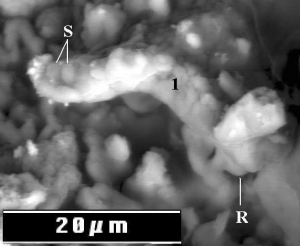In an unusual move, NASA has issued a statement on the alien fossil paper written by Richard Hoover. Key quote:
While we value the free exchange of ideas, data, and information as part of scientific and technical inquiry, NASA cannot stand behind or support a scientific claim unless it has been peer-reviewed or thoroughly examined by other qualified experts. This paper was submitted in 2007 to the International Journal of Astrobiology. However, the peer review process was not completed for that submission. NASA also was unaware of the recent submission of the paper to the Journal of Cosmology or of the paper’s subsequent publication.
This suggests that Hoover was having trouble getting published in one journal, and did an end-around to get published in a journal more agreeable to his conclusions.
Though this does raise questions about the validity of the research, it is always the research itself that matters. In this case I remain skeptical, but intrigued. I really would like to know why the peer-review process on Hoover’s paper was taking so long at the International Journal of Astrobiology. I would also love to read a critique of Hoover’s papers from scientists in the field.

